Brahmaputra River Cruising
By Heidi Sarna
Updated March 2025
I have been to India many times, but I had never taken a river cruise there, until the Mahabaahu. The week I spent cruising on the Brahmaputra River would leave an indelible impression on me and offer a fresh take on a country I thought I knew so well. For my friend and travel mate Sue, it was her first time to India and she fell in love.
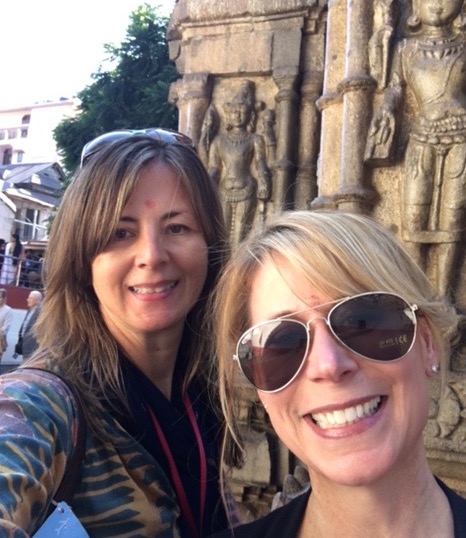
Two old friends enjoying their Indian adventure.
After several days in Delhi enjoying a family wedding, we flew east to the state of Assam to start our cruise. We and other passengers were met at the airport by friendly crew and ushered to our convoy of comfortable taxis. When we reached the muddy riverbanks of the Brahmaputra, a creaking bamboo gangway connected us with our home for the week, the 46-passenger Mahabaahu.
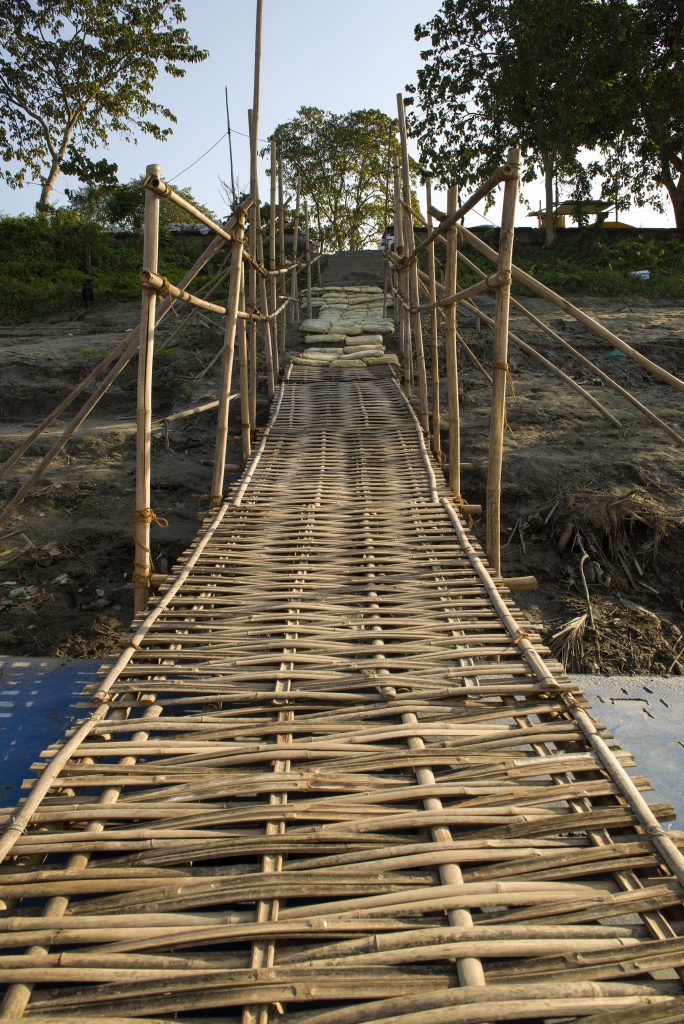
Bamboo gangway to adventure. * Photo: Noni Chawla
Not sleek like Europe’s riverboats, this one was appealingly quirky with its stubby funnel and red cargo davits poking out from the stern, and a hull cluttered with a necklace of tires. I loved it already.
The 2011-built boat, owned and operated by India-based Adventure Resorts & Cruises, a subsidiary of tour operator Far Horizon Tours, was moored below us along the Brahmaputra River, one of India’s most important inland waterways. Named after the son of Lord Brahma, it’s India’s only “male” river and the Mahabaahu is one of only a few tourist riverboats sailing on it.
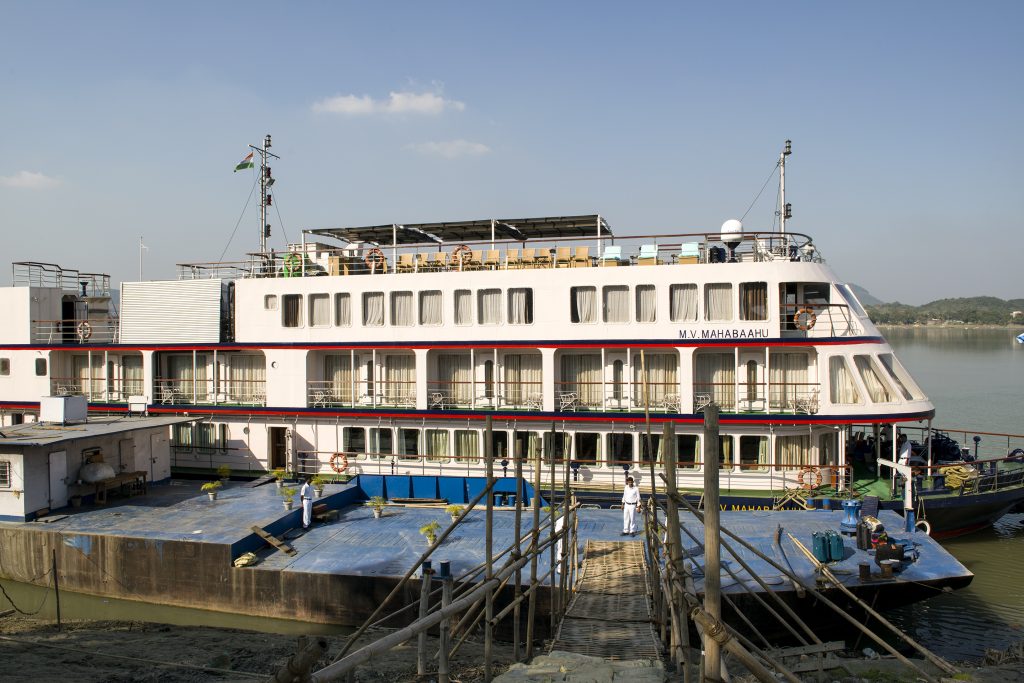
The quirky and loveable Mahabaahu. * Photo: Noni Chawla
RELATED: Heidi Shares 10 Reasons to Consider Brahmaputra River Cruising.
A Remote Corner of India
Our upstream journey would begin in Guwahati and end 374 kilometers later in Jorhat, both in Assam. Neither city is particularly attractive, but what’s in between them is magical.
From its glacial source in southwestern Tibet on the slopes of the Himalayan Mountains, where it’s called the Tsangpo or “Purifier, the river surges east cutting through deep canyons and gorges. It then makes a sharp U-turn and enters the northeastern corner of India and into the Assam Valley on route to the confluence with the Ganges River before emptying into Bangladesh’s flood-prone Bay of Bengal.
In the state of Assam the Brahmaputra widens greatly — some five miles at its broadest — and redistributes an enormous amount of sediment collected along the way, resulting in a river system braided with islands of sand.
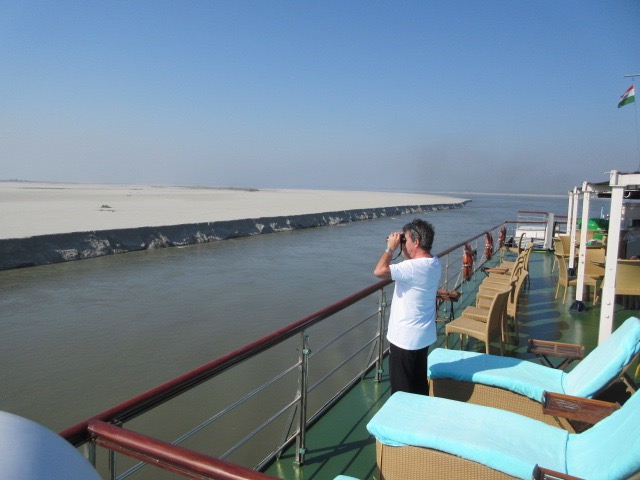
The sand goes on for miles at some points. * Photo: Heidi Sarna
RELATED: Another take on Brahmaputra River cruising in this review by Judi Cohen.
Day 1: Brahmaputra River Cruising
Before we’d get to those serene expanses of sand, we’d get a dose of classic India in over drive. Our first excursion, on route to the Mahabaahu from the airport, was a visit to the 17th-century Kamakhya Temple complex, with its traditional beehive domes, tantric history and practice of animal sacrifice. We removed our shoes as required at the entrance and tried not to think about what we might step in as we waded through the throngs behind our guide and naturalist for the week, Venky.
Dedicated to the goddess of desire Kamakhya Devi and her various avatars, stone reliefs of female deities along the outside of the temples were smeared in blood-red paint and kumkuma powder to symbolize fertility. An important Hindu pilgrimage site, especially for newlyweds wanting to start families, we watched devotees swipe bits of the red powder from the statues’ groin and apply a dash to their own foreheads for good luck. We walked around the bustling compound, stepping around nosy goats spared from the knife and fascinated by the bare-chested sadhus (holy men) with their dreadlocks and wild eyes.
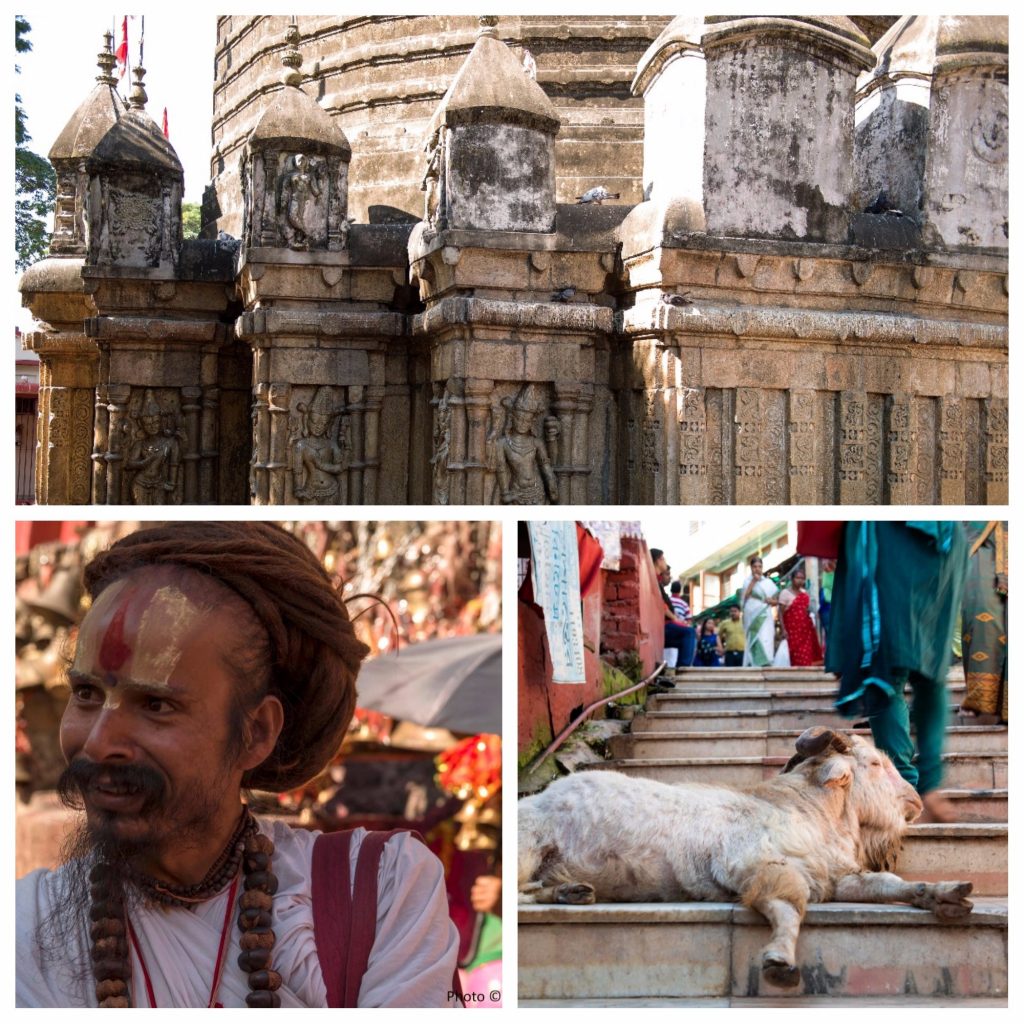
Temple scenes. * Photo: Noni Chawla
Shifting gears, after an hour or two, we were back in our taxis and soon walking down that bamboo gangway and into the Mahabaahu’s homey wood paneled reception area, where we were greeted by our smiling cruise director Neena and a glass of refreshing juice. Our cruise had just 25 passengers (average is about 30), a mix of mostly 60-plus adventurous folks from the UK, Australia, US, Canada and India.
We’d have the chance to meet some of them at lunch, where a delectable buffet of flavorful seafood and other curries and Indian-style eggplant, chickpeas, spinach and breads had us going back for seconds and thirds. Continental options were also offered. We could tell early on that Brahmaputra River cruising would be delicious.
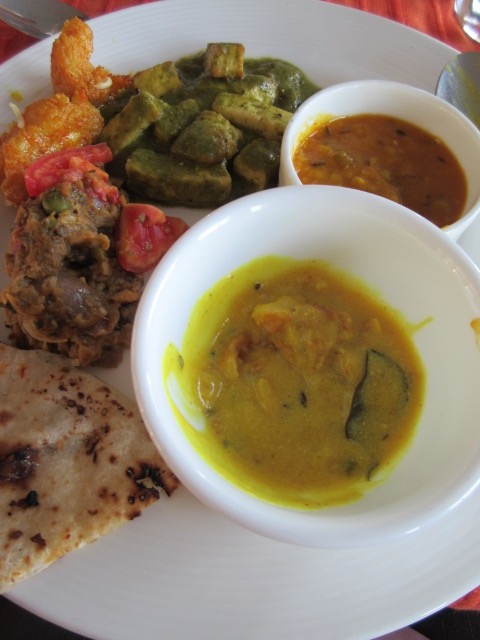
Mealtime was always a treat aboard the Mahabaahu. * Photo: Heidi Sarna
Late afternoon, we were off on another exploration via the Mahabahuu’s pair of comfortable open-air excursion boats. We headed to a nearby island for a look at a hilltop temple and the resident golden langur monkeys, a rare and endangered species, and we collectively oohed and aahed at the glowing orange sunset on display for the short ride back. Almost every evening the sunsets were stunners.
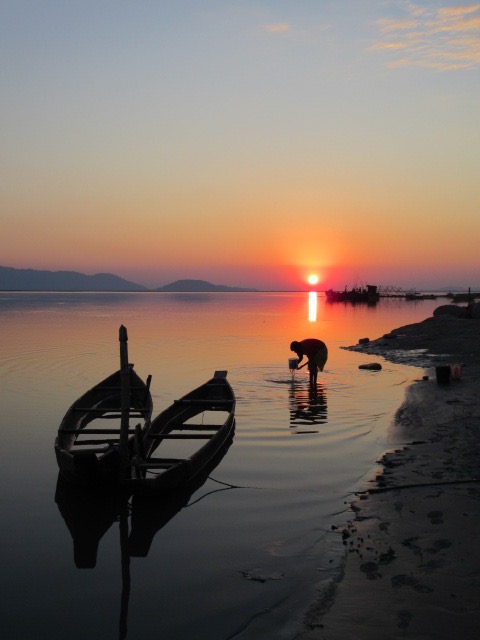
Breathtaking sunsets night after night. * Photo: Heidi Sarna
Dinner the first evening was convivial, with assigned seating to encourage mingling. It worked and we had a lovely time meeting new friends and drinking Indian-made Sula wine; not the best I’ve ever had, but good enough. Dinner was at 7pm and the menu always offered a western choice along with a yummy Indian medley often served on a thali, a metal plate holding several small bowls — the original tasting menu. The rest of the week we were free to sit where we pleased.
Though the comfy Soma bar was an option for pre- and post-dinner drinks, we saved a visit for another evening. Sue and I were back in our cozy cabin by 9pm, as were most of the passengers, ready to sink into our comfortable twin beds after a long fulfilling day. Our Deck 2 cabin had large windows, while some have balconies, and all have mini fridges, TVs, and roomy bathrooms with showers.
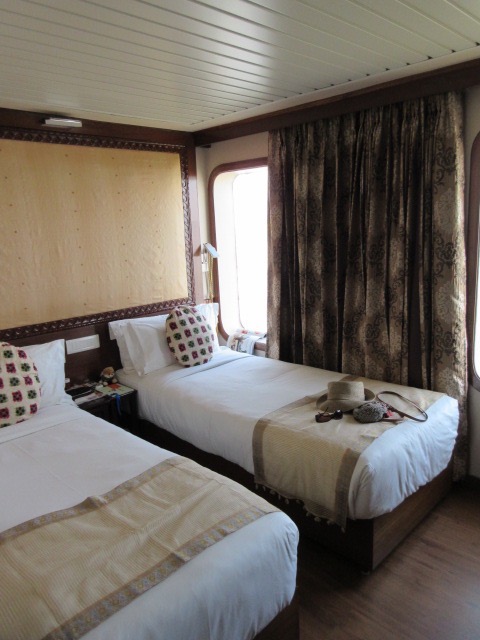
A standard cabin on the Mahabaahu. * Photo: Heidi Sarna
Day 2: Brahmaputra River Cruising
Most of the second day was spent lounging on the top deck, getting familiar with the river and watching local crews dredge and build basic bamboo fences in the river to help keep silt from getting into the navigable channels. After lunch, we went ashore to visit a tiny settlement of migrant families from Bangladesh tending fields of peanuts along the river.
We scaled the dusty banks, grabbing onto bamboo poles crewmembers held between them like a railing, greeted at the top by a few children and their mothers, as fascinated with us as we were with them.
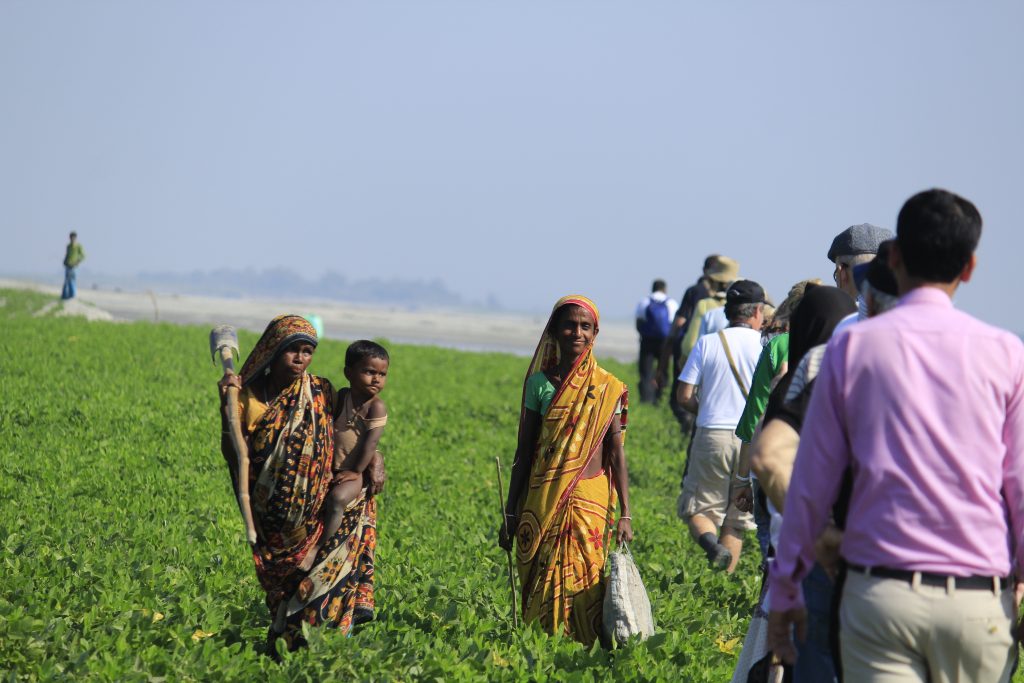
Exploring a small settlement along the Brahmaputra. * Photo: Noni Chawla
Day 3: Brahmaputra River Cruising
A drive to the Kaliabore Tea Estate on day three included a stop to examine the large bright green leaves of the Assamese tea plants (Chinese tea leaves are smaller), one of the world’s principal varieties. Next was a visit to a Victorian-era jute mill straight out of a Dickens novel. Jute fiber dust hung in the air as we walked through the aisles of the large dimly lit factory between rows of workers operating the ancient clanking machines that turned the fibers into course threads and then into ropes and grain sacks.
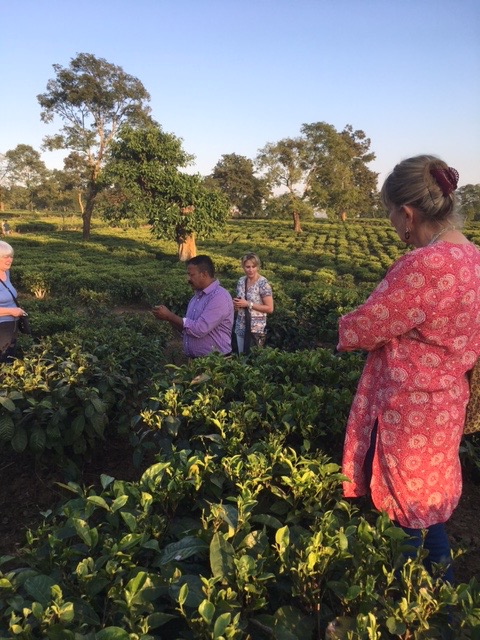
Exploring a tea plantation in Assam. * Photo: Heidi Sarna
Day 4: Brahmaputra River Cruising
Day four was the week’s highlight, an elephant safari in Kaziranga National Park, a UNESCO world heritage site and the world’s largest habitat for endangered one-horned rhinos. Current numbers have the population at more than 2,000. Sue and I were sandwiched between a mahout (the driver) and a park guard toting a shotgun, and following along behind us was our female’s adorable baby. A sign, we were told, that these elephants were well treated and not separated from their young.
Within minutes of tramping through the tall grass in the early morning mist, we spotted wild water buffalos with their impressive arc of horns and soon after, several large rhinos, swamp deer and wild boar. By the end of the one-hour safari atop the lumbering beasts, the sun had risen on a beautiful blue-sky day. After a breakfast of delicious dosas at a nearby hotel, we were back in the park for a two-hour jeep safari, seeing many more animals, including wild Asian elephants.
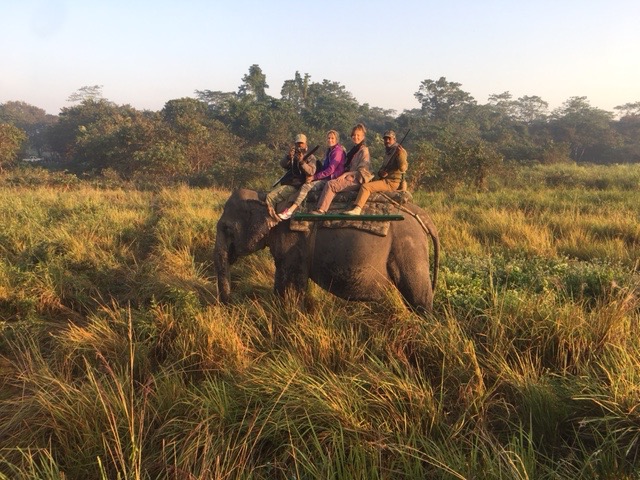
An elephant safari in Kaziranga National Park. * Photo: Heidi Sarna
Days 5-7: Brahmaputra River Cruising
The rest of the week’s excursions entailed walks through villages with Venky, peeking inside basic wooden houses on stilts and shopping for inexpensive hand-loomed saris and fabrics slung over fences and washing lines for our visit. We visited a monastery for a mesmerizing performance of chanting and drumming by a group of young priests.
In the ancient city of Sibsagar, we explored the 18th-century Shiva Dol temple and Rang Ghar royal sports pavilion with their spare elegant Assamese lines. Folk dances, music performances, and a riverside play enacting scenes from the Hindu epic, the Ramayana, added more color and culture to the ports.
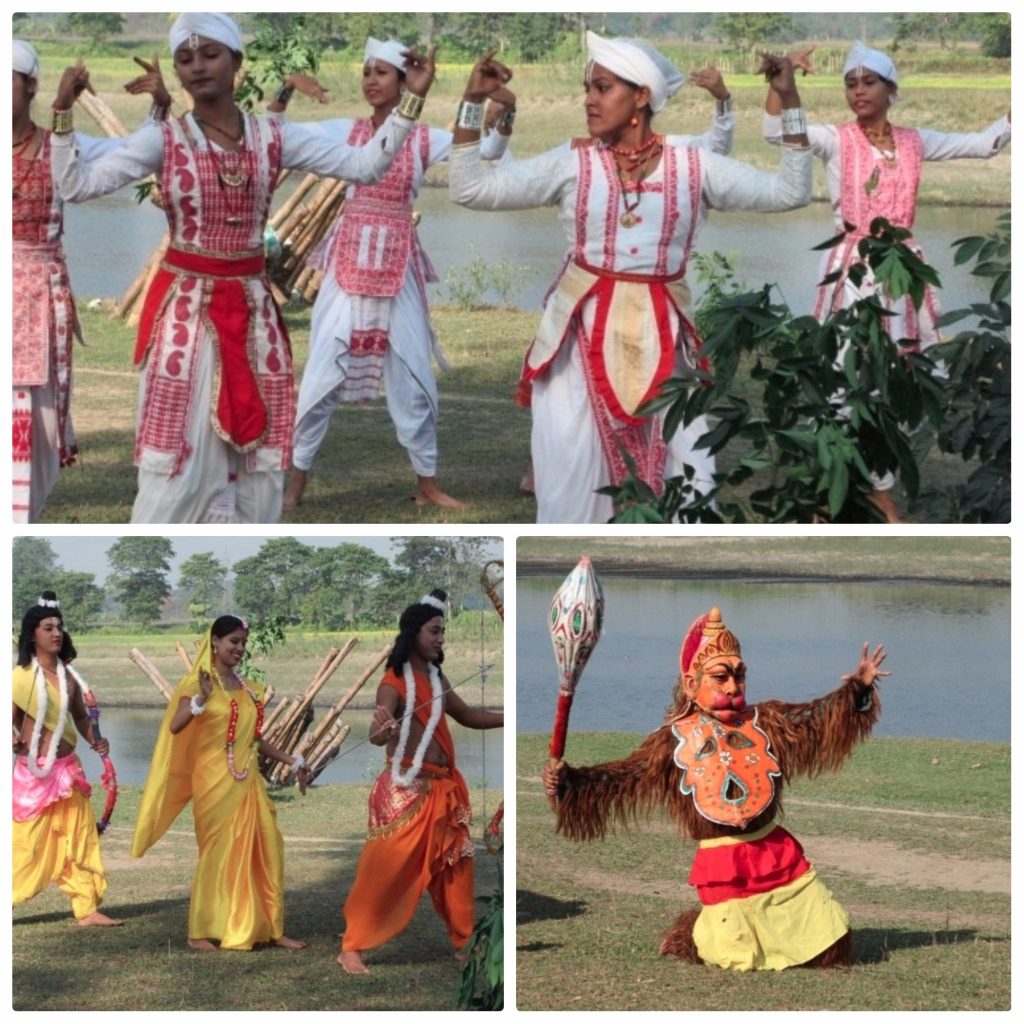
Performances of the Hindu epic Ramayana along the Brahmaputra. * Photo: Heidi Sarna
On Board the Mahabaahu
Back on board, when we weren’t soaking up the river views and looking for Gangetic Dolphins — I saw several leaping out of the water! — some of us hit the mini spa for Auyervedic massages. The classic Indian-style treatments incorporate generous amounts of herb-infused mustard oil and firm kneading and were extremely relaxing and renewing, not to mention inexpensive compared to large cruise ships.
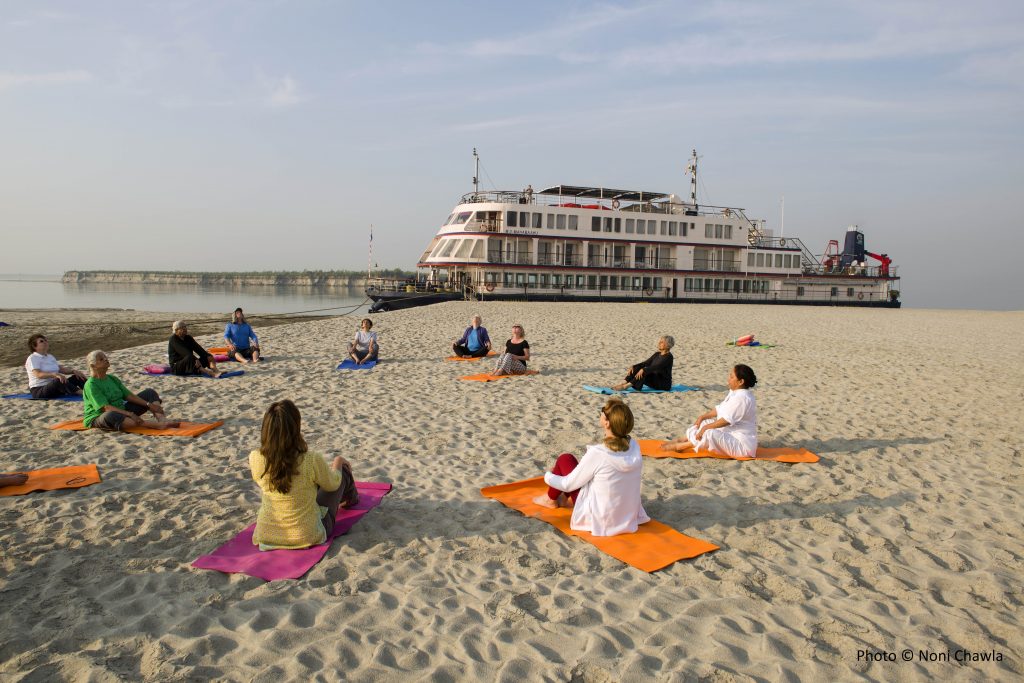
Yoga on a Brahmaputra sand bar. * Photo: Noni Chawla
The Mahabaahu has one stationery bike for exercising and a small outdoor pool that didn’t get much use, I suspect because of its location in the shadows of the ash-spewing funnel. A daily ritual for about a dozen of us was a relaxing morning yoga session led by Neena, typically on deck, and once on a sand bar next to the boat. Informative port talks from Venky were also a daily affair and so were pre-dinner “happy-hour” bonfires set up in the sand (the boat never sails at night) where passengers would chat and sometimes even sing.
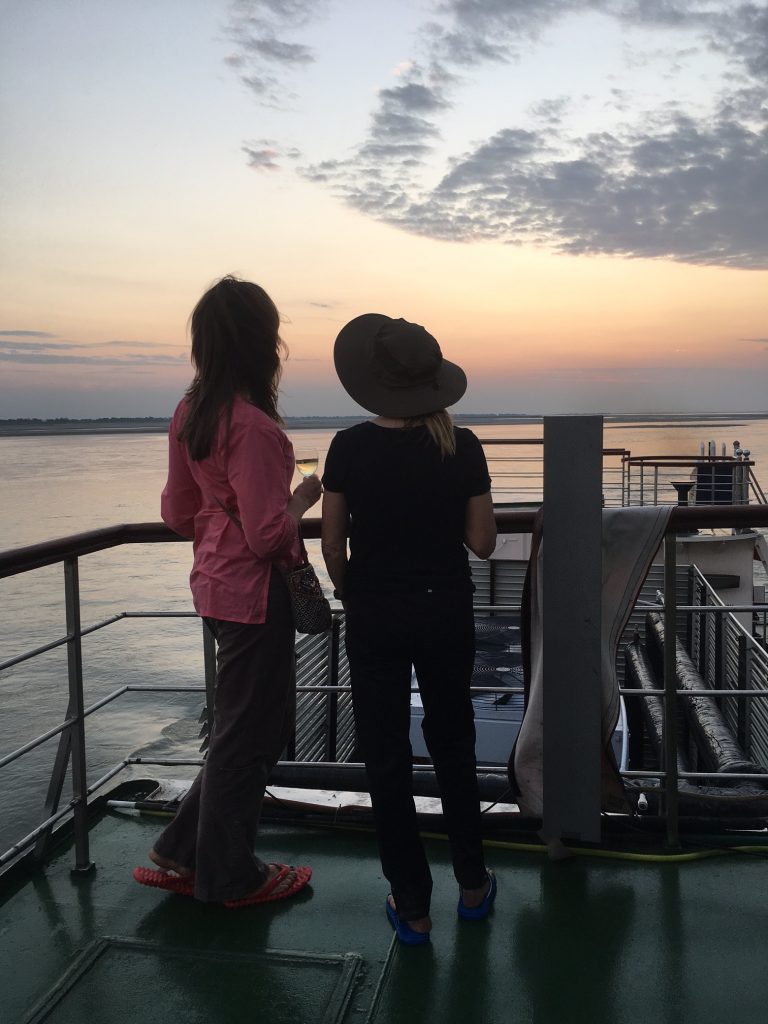
Soul stirring sunsets day after day.
This was a cruise of simple but profound pleasures.
The last day, like the first, included an excursion between the boat and the airport, to a colonial-era tea estate for a talk, a walk and some tea and pakoras (fried vegetables). It was a perfect ending to a very special week.
To Know Before You Go Brahmaputra River Cruising
Fares: 7-night upstream or downstream cruises between Guwahati and Jorhat start at $2,400 USD per person double-occupancy and include meals, all shore excursions and coffee/tea. Wine, beer, spirits, soda and tips are additional, as are popular land extensions to Bhutan, Calcutta or the Golden Triangle (the cities of Delhi, Agra and Jaipur). Note there are also 10- and 11-night versions of the Brahmaputra River cruise that include visits to the region's national parks to for wildlife safaris, including the chance to see big mammals and eight species of primates, plus hundreds of bird species.
Weather: The cruising season is October through April; Nov-Feb is the best time to cruise with evening temps dipping to 45 °F and day time to as high as the low 80's °F. (Heavy monsoon rains fall between June and early October.)
Money Matters: The Indian Rupee is the official currency, and keep in mind torn notes may not be accepted.
Company Contact: Reach out to Adventure River Cruises to book this and other India cruises (the Mahabahuu's fleetmates, the 2-cabin Sauver Nigam and 9-cabin Vaikundam, offer cruises in the backwaters of Kerala, on India’s southwestern coast); for pre- and post-cruise land/hotel tours in India, contact sister company Far Horizon Tours. Both are Indian-owned and operated.
If you'd like our favorite travel advisor Kevin to help you book an India river cruise, plus perhaps some pre/post-cruise hotel nights and touring in India, drop me an email ([email protected]) and I'll connect you pronto!
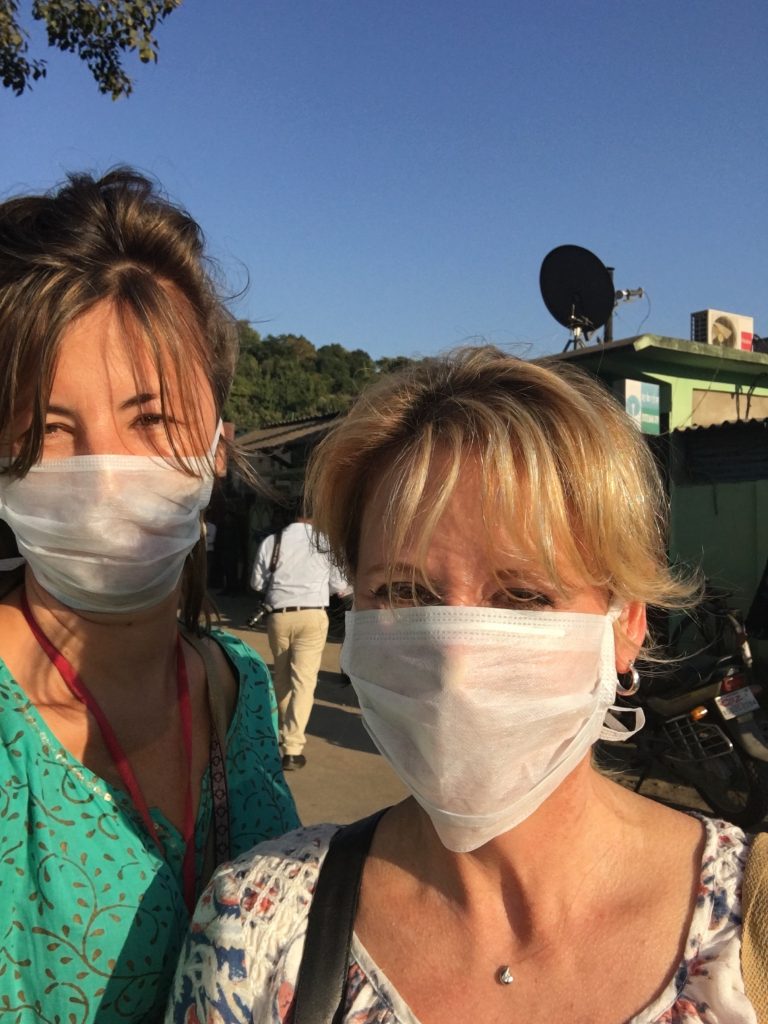
We had the option of donning masks for the tour of a jute factory, as the jute fiber dust and particles are mild irritants to some people. We were fine and just enjoying a masked selfie!
![]()
Don’t miss a post about small-ship cruising, subscribe to QuirkyCruise.com for monthly updates & special offers!
© This article is protected by copyright, no part may be reproduced by any process without written permission from the author. All Rights Reserved. QuirkyCruise.com.

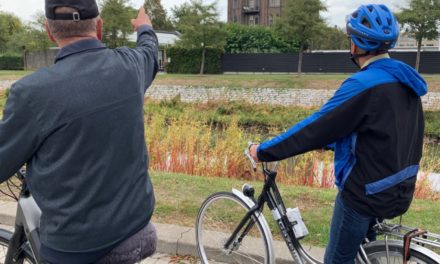

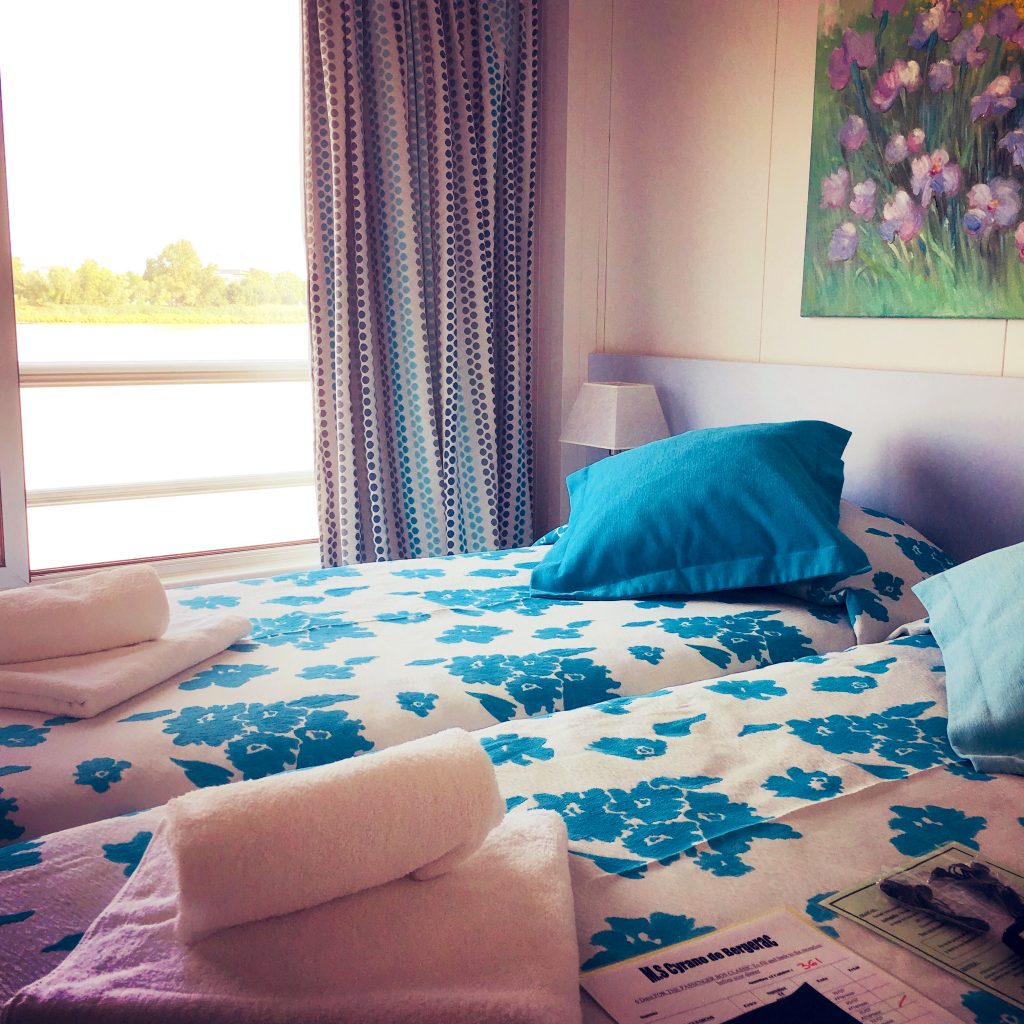
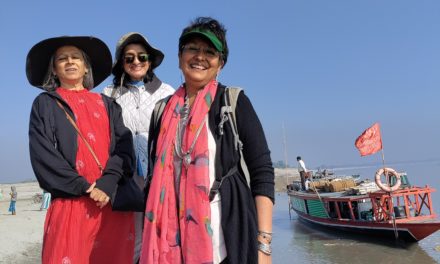

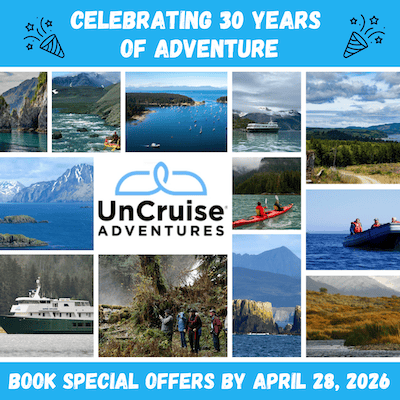
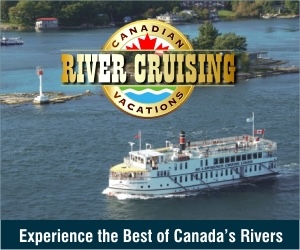



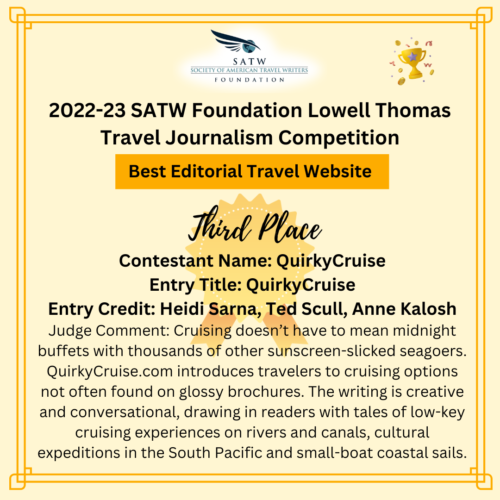


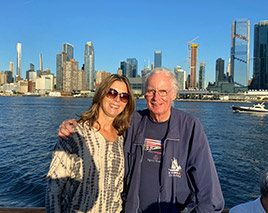 HEIDI SARNA
HEIDI SARNA
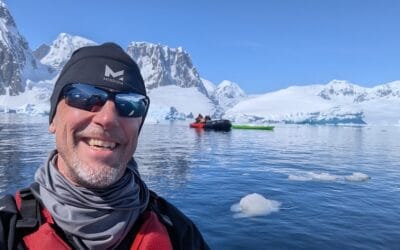

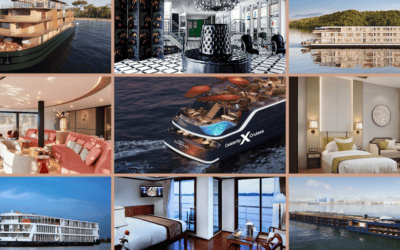
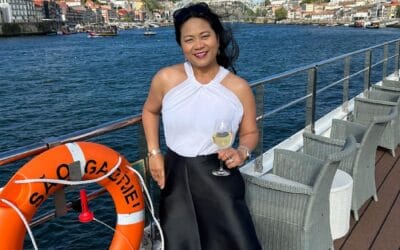
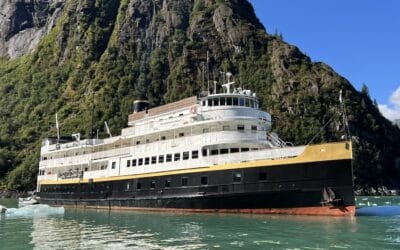
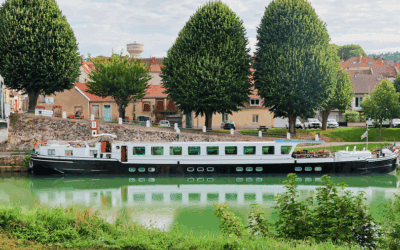
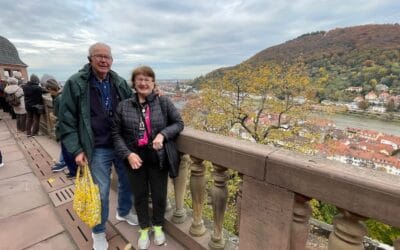
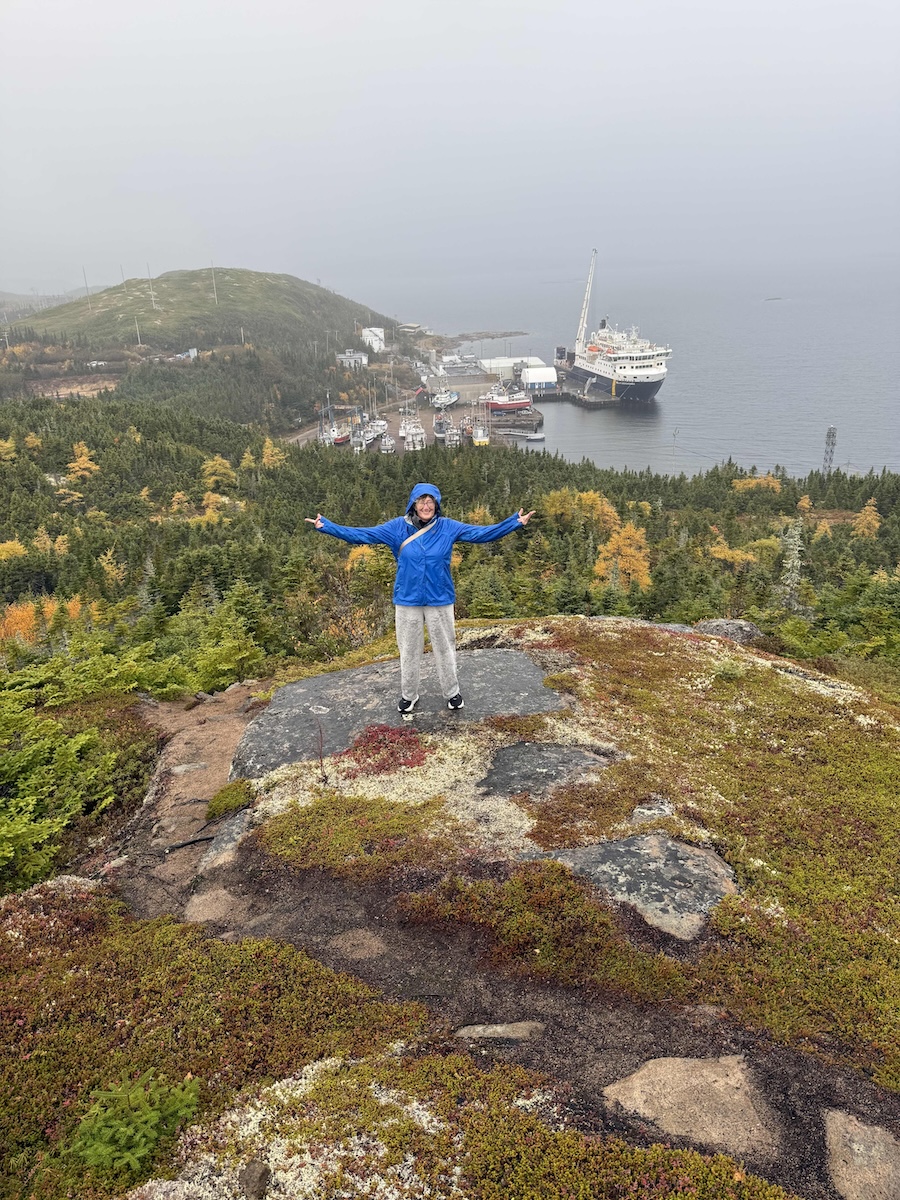
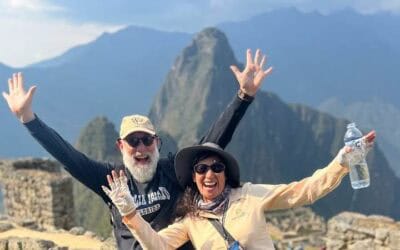
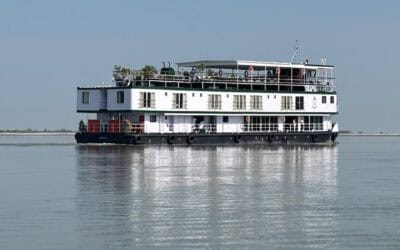
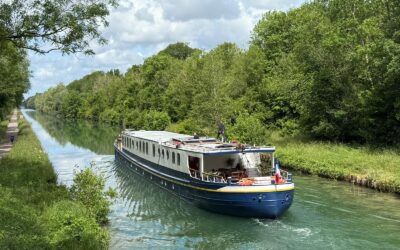

I noticed that you’re both wearing masks in the last photo….could you please explain….if I show that to prospective travel mates, they’ll freak!
Oh gosh, you’re right Peter, sorry! I added a descriptive caption. We were just goofing around outside of the fascinating jute factory; for the tour, visitors have the option of wearing a mask as some people are sensitive to the jute fiber dust. Some of the factory workers wear them, but many did not (though I’m thinking they all should have).